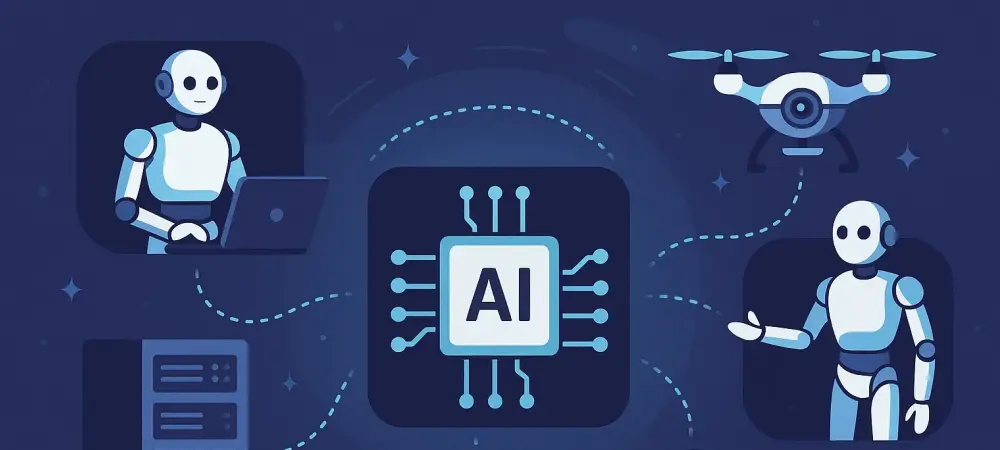In an era where technology is reshaping every aspect of society, the evolution of autonomous AI systems stands among the most significant advancements. The transformative potential of AI in industries like automotive, robotics, and beyond has been substantially propelled by global leaders such as Rajani Acharya. A formidable presence in machine learning and autonomous systems, Acharya is a pivotal force behind innovations that promise to redefine the boundaries of intelligent systems.
Background and Origin
Rajani Acharya’s journey into the world of technology began with a stellar academic record. She pursued her bachelor’s degree in Electronics and Communication at Visvesvaraya Technological University in India, graduating with an immaculate GPA of 4.0. Furthering her expertise, she earned a Master’s degree in Electrical Engineering from the University of Southern California, with a GPA of 3.7. Her education laid a robust foundation in complex systems, signal processing, and computer vision—fields crucial to her future endeavors. Acharya’s professional path unfolded through strategic roles that honed her technical capabilities. At Bharat Electronics Limited, she developed sophisticated radar signal processing algorithms, revolutionizing target detection systems. Her subsequent tenure at AIRBUS saw her engage with flight management simulations, marking her influence on critical aviation technologies. These experiences cemented her reputation as an expert in precision engineering and real-time signal interpretation.
Pioneering Contributions and Achievements
Rajani Acharya’s career is distinguished by a myriad of innovative contributions that showcase her visionary leadership and technical prowess. Her work in developing ADAS technologies at Bosch is particularly noteworthy. She excelled in computer vision systems, advancing capabilities like line detection and sensor fusion, which are instrumental in vehicle automation. At Nvidia, Acharya further demonstrated her innovative edge by enhancing 3D pose estimation algorithms. These advancements optimized stereo vision pipelines, increasing depth accuracy and reducing processing latency—a critical necessity for industrial robotics and autonomous vehicle technologies. Her work ensures machines can reliably interpret 3D spaces, facilitating safer and more efficient autonomous operations.
Development of ADAS Technologies
Acharya’s time at Bosch was marked by groundbreaking advancements in Advanced Driver Assistance Systems (ADAS). Her focus on line detection and sensor fusion allowed vehicles to better assess lane-change feasibility. These innovations are critical to the evolution of more autonomous and safer driving experiences.
Advancements in 3D Pose Estimation
At Nvidia, Acharya’s enhancements to 3D pose estimation revolutionized stereo vision algorithms. By optimizing GPU acceleration, she significantly enhanced depth accuracy and processing speeds—essential improvements that have broad applications in automation and robotics.
Unique Qualities and Leadership Approach
Acharya’s leadership is characterized by an extraordinary blend of technical acumen and visionary guidance. What sets her apart is her commitment to mentorship, strategic planning, and collaboration. At Luminar Technologies, her approach fostered a culture of innovation, resulting in a team that consistently delivers high-performing, safety-critical perception systems. Her methods emphasize a proactive monitoring culture, facilitating continuous improvements in technology development.
Current Position and Ongoing Projects
Currently, Rajani Acharya holds a pivotal position at Luminar Technologies as an Engineering Manager. Her leadership has been instrumental in refining perception systems, achieving unparalleled detection rates under complex conditions. By championing initiatives like “Segment Anything,” she has elevated the quality of data and expedited model training, fostering environments where intelligent systems can thrive.
Reflection and Broader Impacts
Acharya’s career exemplifies technical rigor intertwined with ethical leadership, illustrating both achievements and challenges unique to her journey. Her strategies underscore a holistic approach to engineering, aligning technical roadmaps with broader business objectives and ensuring product excellence.
Reflection
The strengths of Acharya’s approach lie in her dual emphasis on innovation and collaboration, fostering environments conducive to breakthrough developments. While navigating complex challenges, such as aligning engineering initiatives with industry standards, she has demonstrated resilience and adaptability.
Broader Impact
Acharya’s work anticipates more adaptive and reliable AI models, influencing future autonomous technologies. By setting ethical standards and mentoring emerging engineers, she ensures that the industry advances in a manner that is both responsible and visionary.
Conclusion
Rajani Acharya’s journey stands as a testament to the profound impact of a committed leader in the field of autonomous AI systems. Her achievements, characterized by technical ingenuity and visionary leadership, have marked significant milestones in technology. As she continues to explore new horizons in intelligent systems, her influence promises to shape the future of AI and autonomous technologies, driving the industry toward safer, more integrated solutions. Those interested in following her work and the ongoing advancements in the field can anticipate exciting developments that bridge cutting-edge research with practical applications.

